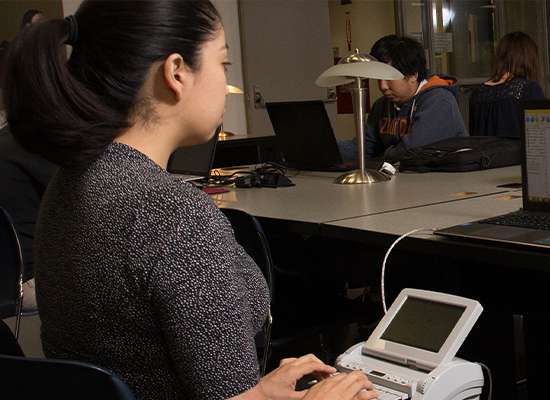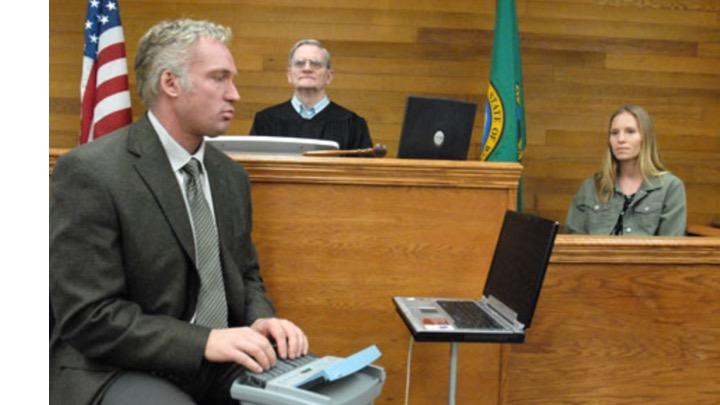Recognizing the Importance of Court Coverage in Legal Services and Procedures
Court coverage plays a pivotal role in the legal landscape, offering as the backbone of exact documents in different legal proceedings. By offering verbatim records, court press reporters make sure that every testimony and debate is thoroughly captured, therefore protecting the honesty of the judicial procedure.
Role of Court Reporters

In enhancement to transcription, court press reporters are often entrusted with managing and maintaining the flow of procedures. They have to be skilled in legal terms and possess a comprehensive understanding of court room methods to guarantee that the record reflects the context and nuances of the dialogue. Their job may also prolong beyond conventional courtrooms, encompassing administrative hearings, adjudications, and various other lawful settings where documentation is essential.
In addition, court reporters might provide real-time coverage, making it possible for instant accessibility to records during process, which can be important for the effective management of justice. By guaranteeing that an accurate document is preserved, court press reporters copyright the integrity of the legal process, promoting charms and serving as a vital source for lawyers in their quest of justice.
Importance of Accuracy

The role of accuracy prolongs beyond plain transcription; it incorporates the capability to record the subtleties of speech, consisting of tone, emphasis, and non-verbal signs, which can be essential in recognizing the context of declarations made. A precise document ensures that all events included-- attorneys, judges, and courts-- have accessibility to the exact same information, promoting fairness and transparency in the judicial procedure.
In addition, precise transcripts are important for the appellate process, where higher courts depend on them to assess reduced court choices. Inaccuracies can threaten the result of an appeal, potentially impacting an event's flexibilities and legal rights. Thus, the dedication to precision in court reporting is not simply a professional commitment however a keystone of justice that promotes the guideline of regulation.
Types of Lawful Proceedings
Covering a large selection of lawful contexts, stenotype reporter are necessary in various sorts of lawful procedures, each needing distinctive approaches and abilities. Among the most typical types are civil litigation, criminal trials, and administrative hearings. In civil litigation, stenotype reporter capture depositions, motions, and testaments, guaranteeing that every detail is documented precisely for possible allures or negotiations.
In criminal trials, the duty of court reporters becomes a lot more critical, as they transcribe all elements of the procedures, including court selections, witness statements, and sentencing phases - Court Reporting. The accuracy and immediacy of these documents are vital, given the possible repercussions for offenders and the integrity of the judicial system
Administrative hearings, frequently carried out by get redirected here governmental agencies, likewise rely upon stenotype reporter to keep main records of proceedings. These hearings can entail disputes pertaining to governing conformity, employment problems, or specialist licensing, requiring specific documents.
In addition, specialized procedures such as settlement and arbitration call for court reporters to record the subtleties of negotiations and agreements. Each sort of legal case provides one-of-a-kind challenges, highlighting the importance of skilled court reporters in supporting the honesty of the legal process.
Technology in Court Reporting
Advancements in modern technology have actually changed the area of court coverage, improving both efficiency and precision in the transcription procedure. Standard techniques of hand-operated note-taking have been supplemented and, sometimes, replaced by advanced digital tools that streamline process and enhance precision (Court Reporting). Stenotype reporter currently utilize sophisticated steno makers equipped with real-time transcription capacities, enabling prompt access to a verbatim account of process
Additionally, the assimilation of speech recognition software has further transformed the coverage landscape. This technology makes it possible for the automated transcription of talked my website words, considerably decreasing the time required for generating main documents. In addition, cloud-based systems facilitate easy storage and retrieval of records, guaranteeing that lawful professionals can access crucial files from anywhere, at any type of time.
Video clip conferencing devices have likewise emerged as vital parts in remote depositions and hearings, helping court press reporters capture procedures in real-time, no matter location. The mix of these technological technologies not only improves the precision of lawful documentation but also sustains a much more flexible and efficient legal process. As the field remains to progress, embracing these innovations will certainly be important in satisfying the expanding demands of the legal industry.
Ethical Considerations in Coverage
The assimilation of modern technology in court coverage brings with it a set of honest considerations that professionals need to browse very carefully. As court press reporters significantly employ electronic tools, issues bordering privacy, accuracy, and honesty pertain to the center. Shielding delicate details is vital; reporters have to ensure that any kind of electronic documents are firmly stored and shared just with licensed individuals.
Additionally, the precision of transcriptions is crucial. Making use of software application for real-time coverage does not discharge court reporters from the responsibility of making sure that the end product is exact. Moral responsibilities dictate that any kind of errors must be without delay remedied and communicated to relevant parties.

Last but not least, compliance with lawful requirements and market regulations is vital. Stenotype reporter have to stay notified concerning progressing ethical standards to maintain the depend on positioned in them by the lawful system. By resolving these moral factors to consider, stenotype reporter can continue to give indispensable solutions in legal process while maintaining public confidence.
Conclusion
In verdict, court coverage plays a vital role in the legal system by making sure accurate and reliable documentation of judicial proceedings. The meticulous job of court press reporters upholds the honesty try these out of the lawful procedure and supports the civil liberties of people involved.
Court reporting plays a critical duty in the legal landscape, offering as the foundation of precise documentation in different lawful proceedings.Court reporters consistently play a crucial function in the judicial procedure by developing precise, verbatim transcripts of lawful process.Moreover, exact transcripts are essential for the appellate procedure, where greater courts count on them to examine reduced court choices.Covering a wide array of legal contexts, court reporters are crucial in various kinds of lawful procedures, each needing unique approaches and abilities. By resolving these ethical factors to consider, court press reporters can continue to provide very useful services in lawful procedures while maintaining public self-confidence.
Comments on “Court Reporting Solutions-- Trustworthy and Counted On the Lawful Sector”